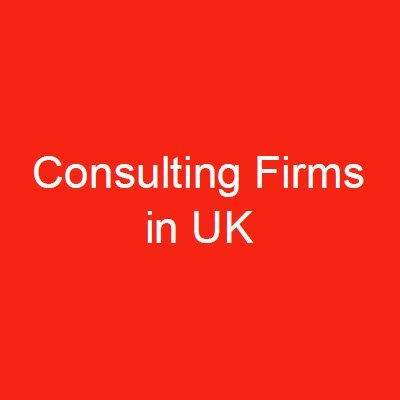Leaderboard
Popular Content
Showing content with the highest reputation since 01/01/2014 in all areas
-
"Gamification is the use of game thinking and game mechanics in non-game contexts to engage users in solving problems and increase users' self-contributions."[1] The following link gives a brief but a very good introduction to gamification - http://www.bunchball.com/gamification. The principles of game mechanics can be seen at work in very popular games such mobile/tab such as candy crush. The degree of involvement in the game is very high. Players often go on for hours and hours trying to improve their scores, reach more levels and so on. Most of the popular forums (stack overflow for example) now incorporate one or more principles of game mechanics. The participants score points for posting, liking, commenting, and answering questions. More the points you collect, higher your rank goes and more privileges you get. Imagine how effective a business would be if it can create a similar level of involvement for its customers or vendors. I experienced gamification first hand when the company I was working for decided to gamify its internal employee portal. Given that the company had grown to 5000+ employees, it was facing employee engagement challenges. A graphical interface was created where employees could create their 'avatars'. One scored points for good work, helping fellow employees with their problems, participating in HR activities etc. Special 'gifts' were awarded for getting technical certifications. The benefits of this program were multi-faceted. Increased collaboration - Employee collaboration shot-up as individuals were now eager to help others to score points. Problems were shared and quickly solved. Good ideas no longer remained in isolation, they quickly spread across the organization. Employee performance diary - Employees and managers could track employee performance via their avatar. Employees now took it upon themselves to record their good work (You got points for good work). This created an employee performance diary, the contents of which proved very helpful during the annual appraisal time. Smoothening of HR processes - The HR was able to transition from the annual appraisal process to a continuous process with hardly any reluctance from the employees. The performance diary formed the base for continuous appraisals. Productivity - Needless to say, as employees got more and more involved in company activities, employee productivity increased More and more processes were soon gamified, resulting in a comprehensive employee engagement platform. The program was so successful that the company offers the platform (called eMee) as a product! It has been a few years since I left the company. But I'm sure the gamification platform has been a big contributor towards the company being ranked among the top in various employee satisfaction surveys. In addition, the platform is now bringing in revenue for the company. References [1] http://en.wikipedia.org/wiki/Gamification3 points
-
2 points
-
In a consulting project, a typical consulting firm will start by coming up with a hypothesis about the problem facing the client. It will then gather information from various sources including market research and data provided by the client. The firm will analyse this information using statistics, consulting methodologies, and industry experience. The firm will then provide recommendations to the client supported by its analysis. A consulting firm's analysis will often be reliable. But it has its limitations, such as the consulting firm may have limited data on which to base its conclusions, or the consulting firm may hide the limitations of its analysis in order to justify the high fees it charges to the client. However, even if the analysis undertaken and recommendations made are sound, this does not guarantee that they will lead to positive financial results for the client. For example: A client may fail to implement the advice which it has received. Market conditions may change which invalidate previous advice. For example, the CEO resigns, a major competitor enters the market, or a new technology is invented. The economy may enter a recession. The earth might get hit by an asteroid. Etc.2 points
-
These are good questions. In an attempt to avoid reinventing the wheel, read Ellen Vrana's answer on Quora.2 points
-
I think maybe its a good thing for the consultants who are asked to resign. First, the job they do currently maybe is not a good fit with his skills. Let's suppose that someone works in a famous consulting firm now, when he is asked to resign, other small consulting firms may need him. And investment banks (and many other companies) who are looking for people with consulting skills may need him. Second, the experience in working in a big consulting firm is good for his CV, and will open up more opportunities than a graduate. Also, I think consulting is a high risk industry because it has a high turnover rate. A critical reason is the "up or out" policy, but it may be risky for other reasons as well.2 points
-
Hi Abby, Thanks for your question! There are a few key differences between the Big 4 (KPMG, EY, Deloitte, PwC) and MBB. Nature of the work - The Big 4 are traditionally accounting firms, which now provide a wide range of professional services including audit, financial advisory, tax, legal and consulting. The Big 4 and MBB may work on similar types of consulting projects, but it will depend a lot on which office you work for, and which practice area you end up in. Historically, the Big 4 have had a bigger focus on operations and implementation, whereas MBB have focused more on pure strategy questions. Hours worked - As a junior in a large professional services firm (i.e. Big 4 or MBB) you can expect to work 60+ hours per week. In other words, Big 4 and MBB will both be long work hours. This may vary depending on what projects you are working on. Prestige - MBB is much more highly regarded in the consulting industry. Why? Well, they spent many years and millions of dollars to make sure this is the case. MBB tends to attract higher calibre employees who studied at more prestigious schools, and as a result MBB consultants tend to progress in their careers much faster (whether it be promotions within MBB, heading off to B-school, or taking a job elsewhere). Don't underestimate the value of a powerful brand name. The People - Most people who land jobs in consulting at the Big 4 and MBB will be smart, hard working and generally impressive individuals. That said, MBB has more pulling power, and will consistently attract the best of the best. Historically, MBB would only recruit from the very best universities, however it seems they now consider a broader range of applicants. Exit Options - Big 4 and MBB will both offer you strong exit opportunities (e.g. B-school, industry, PE). In my experience, business schools and recruiters place a premium on MBB compared to Big 4. MBB are the Oxbridge of the consulting world. Does that help?2 points
-
Hey there guys! I am very delighted to find this great website (thank you Tom!) and happy to see good discussion from the members. I'm a recent grad with a Bach Business degree (economics major) and only a month ago I have decided to jump start my career via management consulting. I am the type of person who has a wide range of interest and find it difficult to settle on an area, this would probably explain my 'late bloomer' situation. As Business was a plan b for me I didn't graduate with a good gpa and without a precise career direction, I missed out on alot of intern/work experience opportunities during my uni years. Fast forward to now, I've narrowed down on what I'm looking for in terms of career aspirations and decided to start/commit with mc. I have my Marc Cosentino, Victor Cheng, several big 3 interview practise cases and Sheryl Sandberg to keep me motivated. With the crappy gpa and utter lack of background, I've decided to widen my scope into boutique/smaller consulting firms. However as 95% of the grad career opportunities & entry roles are currently closed, I've taken some time out of application, into networking (mostly virtual as there aren't much mc related public seminars in Melbourne and most of my peers are economists or finance/bankers) and reading up case studies. But one of the biggest problem is I don't have sufficient relevant work experience to show hiring companies. What would you reckon to be a good way to gain entry into the field given my situation? Am I on the right track? Is there anything I might have missed? What's a good way to find a mentor in this field without having a strong network? Thanks in advance for your time : ) - Rebecca ps. I'm keen on buddying up to practise interview cases via skype or in person (if you're in my area that is)!2 points
-
1 point
-
You can seek a professional advise from some agencies like The Career Foundation (www.careerfoundation.com)1 point
-
I have been listening to him since I started investing in Asian region. Very informative.1 point
-
1 point
-
Responding to the article published previously: Posted on February 4, 2018 Unspoken truths of top-tier consulting: things every consultant knows, but no one says Here raises an interesting question that: do psychopaths make good managers? In the high finance dominant such as hedge fund, Vault recently posts a relevant study to state the NO answer , which synthesizes a research from academic professors that psychopathic traits (lack of empathy, lack of a conscience, enjoying the pain of others) and investing prowess have a negative correlation. What about in the consulting sector? What are the traits that could be concluded in the mental health issues? Do they vary across top-tier consulting firms? and how do they affect the client satisfaction experience over a project period? It is understood and very true that it is not to the general interest to openly discuss about personal struggling, but there is now a global campaign by WHO recently to advocate the awareness on being of such disease in the workforce.1 point
-
Hi Chen, Thanks for this post! So, I understand your basic questions to be: are psychopathic traits and consulting success positively correlated? Two sub-questions might be: what traits do we consider to be "psychopathic"? what do we mean by "consulting success"? Here are some initial thoughts. I hope others with more knowledge can correct or expand on these ideas. Psychopathic traits My impression is that "psychopathy" is an extreme form of what psychiatrists call anti-social personality disorder. Hervey Cleckley, who was an American psychiatrist and pioneer in the field of psychopathy, seems to have suggested psychopathy entails three main traits: Boldness. This trait would include high stress-tolerance, toleration of uncertainty, as well as high self-confidence and social assertiveness. Disinhibition. This trait would include impulsive behaviour, and problems with planning and foresight. Meanness. This trait would include lack of empathy for others, and defiance of authority. Consulting Success "Consulting success" we might broadly define as consistently satisfying supervisors and clients so that you get promoted towards partner level, and offered repeat business by clients. Is there a correlation? The Vault article you linked to suggested that corporate psychopaths tend to get promoted more often than their peers. If that's accurate, would the same correlation be likely to hold in consulting? Well, looking at the three psychopathic traits identified above, my uninformed guess would be that trait #1 and #3 positively contribute towards success in consulting. Consulting projects involve solving problems that are too big, new, unstructured, or time sensitive for the client to deal with internally. Hence tolerance of uncertainty (trait #1) would seem to be useful in this environment. Consulting projects also involve working on a team where you have to present yourself in the best possible light, and make sure you don't get exploited or worked to the bone by your manager or colleagues. Some amount of disagreeableness (trait #3) would therefore seem useful in protecting your own position relative to the group. Having said that, I doubt that impulsivity (trait #2) is a predictor of consulting success. The consultants I know tend to have a planned, methodical, and structured approach to their work. I would love to hear other people's ideas on this topic.1 point
-
Hi, Have you considered adding Loop Foundry (loopfoundry.com.au) to the IT Consulting list? And Acutel Consulting might be better off in the Engineering list rather than the IT list. Cheers, Jack (Director, Loop Foundry).1 point
-
1 point
-
I think this question relates to your previous question, which was "Are consulting firms always reliable?" As Abby noted: In other words, consultants can guarantee the quality of their advice, but can't guarantee results. Could consulting firms provide insurance? Theoretically yes, however it would expose consulting firms to additional risks. Typically consulting fees are paid for a consulting project, and then the project comes to an end. Insurance premiums, on the other hand, are paid on a regular basis, and so a consulting firm would need to remain involved with the client over the longer term in order to monitor the health of its business. Insurance companies are able to provide insurance because they insure a large number of customers, and the risk that each will suffer loss is small. A consulting firm would not be able to provide insurance at the required scale unless it became a fully fledged insurance company.1 point
-
Hi Monro, Very good question! There are at least four (4) reasons that a company might choose external consultants (even when they have good internal consultants available): Expert knowledge: External consultants may have experience solving similar problems and an understanding of industry best practice that internal consultants do not have. Independent advice: External consultants can assist management by providing independent third party recommendations. Internal consultants may have a vested interest in the outcome of their advice. For example, they are unlikely to recommend cost savings that include job layoffs in their own department. Catalyst for change: Senior management may need to support for organisational change, and so hiring a top consulting firm can provide political cover for them to push through difficult changes, "nobody ever got fired for hiring McKinsey". Cost effective solution: For some types of projects (e.g. software development) consultants may represent a cost-effective solution. A firm may lack the capabilities needed to complete the project in a timely or cost effective manner and it may not be feasible to hire and train full time staff.1 point
-
External consultants set foot in many industries, so they may have more knowledge than internal consultants and have the ability to control the overall situation. But the internal consultants just need to face the situation in one company (one industry), so they won't have as much knowledge. In my opinion, hiring an external consultant is necessary because they can deal with many problems that internal consultants can't deal with. Some problems involve several industries, external consultants will give their customers a proposal timely and accurately to solve the problems.1 point
-
From my perspective, asking help form consulting firms is not necessary. It depends on the specific situation. In most cases, hiring an external consulting firm help, but you need to contrast the differences between the cost and the benefit of hiring consultants.1 point
-
Consulting firms can provide a service focusing on saving companies out of bankruptcy and reducing the loss. Additionally, if the clients are worth helping the consulting firms can make an investment on them directly to earn dividend when the clients are on the right track.1 point
-
The consulting team will usually communicate with the client throughout the project at various intervals:daily,weekly,monthly.They may keep their client informed about the evolving hypothesis and make sure the consulting team is on track to meet client exceptions.1 point
-
Monro, This is a very good question! Thanks for asking it! It is true that during economic downturns prospective clients will typically have less money, or more uncertain cash flows, and so they will be less likely to spend money on consulting services. As a result, consulting firms may earn less revenue during economic downturns, and some consultants may become unemployed. Consultants and consulting firms can go some way towards reducing the effect of economic downturns by offering a range of services including some which are "countercyclical". That is, services for which demand demand increases during downturns, such as supply chain management, restructuring and turnaround support services.1 point
-
In consulting firms, the "up or out" policy is a requirement that consultants be selected for promotion within a certain period of time, or they will be "counselling out" of the firm. Is this a bad thing? Well, on the one hand, if you are a super star consultant, then the "up or out" policy is a good thing since it can give you the chance to progress your career at an accelerated pace, gaining valuable work experience within a relatively short period of time. However, on the other hand, consulting firms typically have a pyramid structure (with a few partners at the top, and lots of juniors at the bottom), which means that every year some consultants will inevitably be encouraged to pursue other opportunities. But since top consulting firms only hire the best of the best, leaving after two years should not be viewed as a failure. It is very common for this to happen. A few years of management consulting experience can open up various attractive exit opportunities including: Pursuing an MBA at a brand name business school (Harvard, Stanford, Oxford, INSEAD) Going to work at another consulting firm (just because you leave one firm, doesn't mean you have to leave the industry) Going to work for a client (you already know their business, and so if they like your work they may try to poach you) Build a startup. Consultants gain experience in understanding various industry sectors, and this knowledge could be used to identify opportunities for a new start-up company. The connections and networks built during your years in consulting may also come in useful when trying to raising start-up funding. Some of the commentary I read elsewhere suggests that junior consultants need to be guarded, and avoid making friends so that they can remain as competitive as possible in an "up or out" environment. While consulting firms are no doubt very competitive environments, I would suggest instead that junior consultants focus their attention on maximising their contribution (both in a professional and social setting). This will naturally attract positive attention (but be careful not to let others steal your credit). Consulting is probably not a good career path for people looking for affirmation from colleagues and clients. As New York based consultant Alan Weiss puts it, "if you want to be liked, get a dog". Is a consulting career high risk? In my view, students looking to start their career in the management consulting industry should view it as a continuation of their education. You may not remain a consultant for your whole career, but you may get to work on interesting projects and learn a lot for a few years before you reassess what you want to do with your life.1 point
-
Big 4 focus on the tactical and operational level while MBB focus on strategic level. Big 4 are adept at tasks relating to financial management because of its solid financial foundation, but MBB are still the best consulting firms anyway.1 point
-
1 point
-
Marks vs. Quantitative Skills: A Student Perspective Question: Is it better for me to do easier subjects which will improve my 'GPA' - Vs. - Doing harder subjects that are more quantitative and mathematical? I am a final year business school student majoring in economics, wanting to move into management consulting. What is the lifetime benefit of my GPA when applying for Short term: Internships, Graduate Roles, to then further down the track 10+ years. I like a challenge and feel that doing the harder subjects, improves my quantitative and analytical skills. And therefore better prepare me for management consulting, or a career in banking. What are your thoughts? Marks vs. Quantitative Skills: A Student Perspective Question: Is it better for me to do easier subjects which will improve my 'GPA' - Vs. - Doing harder subjects that are more quantitative and mathematical? I am a final year business school student majoring in economics, wanting to move into management consulting. What is the lifetime benefit of my GPA when applying for Short term: Internships, Graduate Roles, to then further down the track 10+ years. I like a challenge and feel that doing the harder subjects, improves my quantitative and analytical skills. And therefore better prepare me for management consulting, or a career in banking. What are your thoughts? Marks vs. Quantitative Skills: A Student Perspective Question: Is it better for me to do easier subjects which will improve my 'GPA' - Vs. - Doing harder subjects that are more quantitative and mathematical? I am a final year business school student majoring in economics, wanting to move into management consulting. What is the lifetime benefit of my GPA when applying for Short term: Internships, Graduate Roles, to then further down the track 10+ years. I like a challenge and feel that doing the harder subjects, improves my quantitative and analytical skills. And therefore better prepare me for management consulting, or a career in banking. What are your thoughts?1 point
-
Hi Patrick! Welcome to the community! Marks are important, in the sense that the HR people at a consulting firm will use marks as a way to filter applications. Don't forget though that consulting firms are looking for signs of success. This is not limited to academic success, and can also include sporting achievements, leadership of community groups, or other noteworthy achievements. Which consulting firms are you thinking of applying to? Best wishes, Sally1 point
-
Patrick, Apologies for the delayed response (your post was for some reason scheduled for moderation). This is a great question, and it really helps to highlight the perverse incentives that the education system can impose on students. The education system tends to push clever students to challenge themselves academically, but this may not turn out to be useful for career purposes. Out of interest, what are the harder subjects that you are considering? Are they relevant for jobs like banking and consulting? I agree with you that harder subjects can provide you with more opportunities to challenge yourself and enhance your intellectual skills, but you also need to keep your goals in mind. Three (3) points to consider: 1. Relevance of the content - Are the courses directly relevant for consulting/banking? That is, do they provide practical information that would allow you to be more effective at producing value for your boss and the client on day one? They probably don't. It's worth noting that 80% of the content you learn in class will never be directly used once you enter the workforce. 2. Demonstrating success - Unfortunately, you will not get rewarded for "challenging yourself". You will get rewarded for demonstrating success. If you are a high achiever, then I appreciate that this can be hard to come to terms with because your natural inclination will be to want to push yourself to see how much you can achieve. What you need to appreciate is that consulting firms (like your future clients) only really care about outcomes, and they don't really care that you picked difficult subjects. If you feel you can excel in the hard subjects, by all means take them. For bright students, easy subjects can sometimes become boring, and so harder to focus on and do well in. 3. Long term impact - In the short run, you want to get job offers and high marks can help you land interviews. In the long run, your marks may or may not matter. There is every chance that you may want to pursue further education (e.g. masters, MBA or PhD). For Masters and PhD programs your undergraduate marks (and subjects) are likely to be relevant. For MBA programs your work experience, work references and GMAT scores will carry most of the weight. Does this help?1 point
-
Responding to the recent post on "Gatekeepers vs Enablers", I wanted to share my two cents worth of strategies to deal with gatekeepers. In fact, they are not even my two cents, they are ideas I picked up from Alan Weiss. Alan talks a lot about "getting to the economic buyer", that is, getting to the person who can write the cheque or give the order to commence a consulting project without needing to get sign-off or approval from other people. Gatekeepers are the people who stand between the consultant and the economic buyer. In this context, Alan provides three ideas to get around the gatekeeper: Appeal to the gatekeeper's rational self interest - Explain how the project will be a success and make or save the company lots of money and so arranging an introduction with the economic buyer is a win-win situation; If rational self interest fails, try guile - Explain that "ethically" you need to hear about the project requirements from the ultimate decision maker in order to avoid miscommunication etc.; If rational self interest and guile both fail, then blow up the gatekeeper - Find a way to get to the economic buyer independently. Don't bad mouth the gatekeeper in the process, but don't let them stand in your way. I'm not sure that these three points are particularly relevant in the context of reaching out to students with career resources, but they will be relevant for independent consultants wanting to sell consulting projects to potential clients.1 point
-
If I were a consultant, I would keep an eye on the rate at which the technology is moving. Referring to the HBR article consulting on the cusp of destruction, opacity and agility were the two factors that kept consulting immune to disruption. Opacity is under threat. The changing business models offered by companies such as CONSULTED and the democratization of knowledge[1] will continue to diminish its importance. I cannot overstate the impact of technology, especially Big Data and Analytics on consulting. The sky rocketing rate at which data is being generated and collected, exponentially increasing computer processing power, and powerful algorithms that can derive never-before insights from this data, would eat more and more into what was purely a professional's job. Has been happening in marketing (an interesting story), is now poised to hit medicine (HBR), and it's not going to stop. However, the constantly changing business environment will bring in new problems which would need to be solved [1]. The world will continue to need consultants. But the classical consultant may not be the one. In this digital world, I believe the power may shift towards consultants who can understand and define algorithms or techies who understand business. My advice to aspiring consultants - consider equipping yourself with this new weapon and keep an eye open for potential disruptors. References [1] https://hbr.org/2013/10/consulting-on-the-cusp-of-disruption1 point
-
So much for my reading list. On the second day of the break I stumbled across a 20th Anniversary revised edition of Barbarians at the Gate (the book about RJR Nabisco's LBO) and have been working my way through that every spare moment I get away from eating and drinking1 point
-
Sally, Thanks for your thoughts. It may not effect the major consulting firms right now, but the nature of a disruptive innovation is that it begins in a part of the market is too small or low margin for the established players to care about. Once the innovation gains a foothold at the bottom of the market, it is then able to slowly move upmarket and displace the established players.1 point
-
Thanks for your response Eric. I was a bit unsure about contacting the HR person since contacting them was unlikely to improve my outcome. Found out yesterday that I've landed the job! So happy! :-)1 point
-
Consulting Firms in New Zealand, 2018 Edition View File This guidebook provides an overview of the most prominent consulting firms in New Zealand. Submitter Tom Spencer Submitted 08/15/2014 Category Consulting Applications1 point
-
If you were an undergraduate student considering your career options, would you say that management consulting is the most intellectually stimulating career path you can follow out of undergrad? Interested to hear your thoughts x1 point
-
Here is a list of consulting firms in London, UK. It forms part of the full list of consulting firms in the UK, and the global list of consulting firms. If you have any suggested additions, amendments or deletions to this list of consulting firms in London, UK, please let me know by posting a comment in this topic. Strategy & General Business Consulting Firms ABeam Consulting Accenture Alexander Proudfoot Alpha Financial Markets Consulting Alvarez & Marsal Arthur D. Little A.T. Kearney Avasant Bain & Company Strategy& BCG BTS Cartesian Candesic CCS Cedar Management Consulting Celerant Consulting Charles River Associates (CRA) CIBER Corporate Executive Board Corporate Value Associates PwC + Diamond Navigant Consulting Edgar Dunn & Company Essex Forum Corporation Frost & Sullivan FTI Consulting GEP The Hackett Group Hokenson Group ICF International Kurt Salmon Kaiser Associates Kanta Group Kantar Health Lansdowne Consulting Leigh Fisher Associates LEK Consulting LOGIC Management Consulting Marakon Associates Mars & Company McKinsey & Company Roland Berger Strategy Consultants Monitor Deloitte Northrop Grumman Corporation Consulting OC&C Strategy Consultants Oliver Wyman PA Consulting Group Parthenon Group Protiviti Real Options Group RHR International Schlumberger Business Consulting SDG Group Seabury Group Simon Kucher & Partners Solving Efeso Stern Stewart & Company Strategos Tefen Management Consulting Treasury Strategies Vivaldi Partners Value Partners Management Consulting Volt Consulting Zolfo Cooper 2020 Delivery Professional Services Firms Brattle Group Deloitte Consulting Eurasia Group Grant Thornton EY Huron Consulting Group KPMG Consulting PwC RGP Capital Raising / Financial Services Consulting Firms AlixPartners Arthur D. Little Cambridge Associates Capco Navigant Consulting FTI Consulting Lansdowne Consulting M&A Partners Quantitative Risk Management Tefen Management Consulting Real Estate Consulting Firms Deloitte Real Estate EY GVA Savills FTI Consulting JLL DTZ Lambert Smith Hampton Victor Stone Property Consultants Celestial Globe CBRE Levy Burgeon Knight Frank Branding / Marketing Consulting Firms Added Value Razorfish Hill & Knowlton IDEO Kanta Group Kantar Health Lippincott Millward Brown Prophet Tefen Management Consulting ZS Associates Business Intelligence Consulting Firms ABeam Consulting Global Intelligence Alliance Greenwich Associates IT Consulting Firms ABeam Consulting Accenture Aon Consulting APT Arthur D. Little A.T. Kearney Avanade BearingPoint BMC Software Consulting BT Global Services CapGemini CGI CGN Global Cognizant CA Technologies Computer Sciences Corporation (CSC) BAE Systems Applied Intelligence EquaTerra Everest Group Everis FICO Gartner Hitachi Consulting IMS Health Infosys Consulting CGI Miracle Software Systems Tata Consultancy Services ISG One Wipro Technologies NNT Data Lightspeed Research Marketbridge Milliman North Highland Opera Solutions PA Consulting Group SAIC SAP Consulting Sapient Sogeti Unisys Consulting HR Consulting Firms Volt Consulting ABeam Consulting Advisory Board Company Aon Consulting BPI Group Buck Consultants Egon Zehnder International Harris & Associates Hay Group Experis Manpower Mercer Consulting Robert Half Russell Reynolds Associates Towers Watson Engineering / Project Management Consulting Firms Atkins Global Hatch Associates MWH Global Stroud Consulting Environmental Consulting Firms ABeam Consulting ENVIRON Economic Consulting Firms Navigant Consulting FTI Consulting Gallup Consulting Kaiser Associates NERA Economic Consulting1 point
-
Here is a list of consulting firms in Sydney, Australia. It forms part of the full list of consulting firms in Australia, and the global list of consulting firms. If you have any suggested additions, amendments or deletions to this list of consulting firms in Sydney, Australia, please let me know by posting a comment in this topic. Strategy & General Business Consulting Firms Nous Group Pacific Strategy Partners Port Jackson Partners Crescendo Partners Momentum Partners Second Road Bain BCG McKinsey Accenture Archstone Consulting A.T. Kearney The Birchman Group CVA Deloitte Edgar, Dunn & Company Frost & Sullivan FTI Consulting L.E.K. Consulting Oliver Wyman Partners in Performance Peppers & Rogers Group Simon Kuch & Partners Strategy& The Hackett Group Kantar Health North Highland BTS Professional Services Firms PwC Deloitte EY A.T. Kearney Accenture KPMG Protiviti RGP Capital Raising / Financial Services Consulting Firms Cambridge Associates CMB Capital Sydney Angels Hall Capital Integral Capital Group Odyssey Alchemy Equities ASSOB Proactive CFOs Zurich AMP Yellow Brick Road FP Markets Future Plus Baron Partners Rice Warner Jennings Financial Services Elias Financial Services Omni Wealth Fusion Bongiorno Astute Financial Profile Financial Services Principal Edge Financial Services Financial Services Partners Macquarie Real Estate Consulting Firms SGA Property Consultancy BEM Property Davis Property Consulting Mark Allan Property Consultants Maunsell Property Consultants Gerard Cole Davis Property Consulting Apex Property Stockland Thexton Armstrong Savills Preston Rowe Paterson Peter Phippen & Associates Blue Print Property Balmoral Partners Prestige Property Consultants Branding/Marketing Consulting Firms Added Value Hill & Knowlton Millward Brown Brand Institute RBL Brand Factory Brand Matters Landor Marketing Eye The Sponge Biscuit Olivia Hannah Brand Marque Mainspring JWPM Eyes Wide Open Marketing Angels Outsource On The Mark Michael Field Little Marketing Diana Jones Results Easy Business Intelligence Consulting Firms ISG Wood Mackenzie Accenture CBIG Consulting IRW Systems Altis Consulting Business Intelligence People CMBI Angry Koala SSW Consulting Agile BI C3 Business Solutions IT Consulting Firms Avanade Razorfish BMC Software Consulting CapGemini CA Technologies CGI CIBER Cognizant CSC FICO Gartner IMS Health Infosys Consulting Milliman Sapient Tata Consultancy Services Unisys Consulting PicNet Information Technology Services HR Consulting Firms Aon Consulting Corporate Executive Board Egon Zehnder International Forum Corporation Harris & Associates Hay Group Manpower Mercer Consulting Robert Half Towers Watson Engineering / Project Management Consulting Firms Atkins Global Hatch Associates MWH Consulting Quay Consulting Seven Consulting Gallagher Jeffs Consulting Core Project Consulting Brown Consulting Cadence Australia Auric Projects Aver Arup Tracey Brunstrom & Hammond Six Hills Group Point Project Management Aquenta Phoenix UXC Consulting Environmental Consulting Firms ENVIRON Geotechnique JBS&G Environmental Strategies SLR Consulting Australia KMH Environmental Eco Logical Australia Neilly Davis Rare Consulting National Environmental Consulting Services APC Geo Logix Hayes Environmental Consulting SESL Australia Pitt & Sherry GIS Environmental Consultants Safety & Environmental Services Australia Ambecol AWC Consulting Earth Scientists Brown Consulting Economic Consulting Firms Gallup NERA Economic Consulting SESL Consulting Australia Acil Allen Consulting Synergies Economic Consulting Centre for International Economics Applied Economics PwC THEMA FTI Consulting LEK Consulting1 point
-
M K, Here are some of the best resources I can find which give you an insight into the main Management Consulting Frameworks: Tom Spencer's Consulting Frameworks Victor Cheng's Case Interview Marathon Workshop Harvard Business School Management Consulting Club Case Interview Guide, pages 3 to 32 Columbia Business School's Case Interview Guidebook, pages 28 to 32 Tuck Consulting Club Guide to Case Interviews, Strategic Tools & Frameworks, pages 9 to 19 MIT Case Book and Interview Guide, Chapter 6 Darden Consulting Club Interview Guide, pages 14 to 26 Does that help? Best, Sal1 point
-
Having just applied for a number of consulting graduate jobs, some are asking for UAI/ATAR as well. I don't see the relevance personally. The Hsc is not a clear indication of intelligence and your ability to perform intellectually changes over time, which I can definitely say is true for me, the way I work and perform at uni is light years away to how I was at school. I think final year results this late after school are redundant1 point
-
1 point
-
I think the answer lies in the vast alumni network that McKinsey has amassed over the years. It is no secret that many key people currently with vast influence over the global business network began their careers as management consultants and of the Big Three McKinsey has the most employees and has been around the longest. I'm interested in reading the book and seeing if it touches on this key aspect of the company.1 point
-
Really eric? You couldn't have responded without bringing in Gupta's cultural background into play?1 point
-
Finished reading the book a few weeks ago and is quite an interesting look at the Management Consulting industry in general as well as McKinsey in particular. Definitely recommend it to anyone wanting to pursue a career as a Management Consultant.1 point
-
I see your point, but isn't quality a tricky thing to measure? It's subjectivity causes measurement difficulties as even against a standard benchmark it is still the interpretation of those receiving the service determining the levels of competency or quality which is different for each person. Having a benchmark as a comparator is a starting point, but can we ever have a true indicator of quality performance? One may indeed fulfill the set brief, but the ability of one to fulfil that brief will depend on how those setting the brief understand it themselves.1 point
-
Despite having offices in more than 19 countries, they are yet to make it down to Australia. Maybe 2014 is the year!1 point
-
Definitely agree with the personalised aspect of the email, but a few other things popped into mind as well. Looking primarily at Facebook, people do not use the site as a place do go to to buy things, whereas it is quite common for products and services to pop up in your email for one reason or another like agreeing to s ign up for third party information sharing, so people are more willing to give this the attention and time compared to glazing over something on Facebook. I think also the way we access Facebook would also influence this as many app versions of the site filter content and may not necessarily show these products and services that may appeal to users. I know I would not be on fb anywhere near as much as I am if I only accessed it via a computer, where as the way emails are viewed is constant between computer and smartphone/tablet etc. so I feel this May influence on the success comparator of email marketing between the two mediums1 point
-
1 point
-
I don't think consulting firms look for a specific major re. I've know ppl with various degree backgrounds who got hired by major consulting firms it's more about your skills and personality definitely eg. you have to be able to speak up in front of ppl1 point
-
Key quote: "What I learned is that burning out isn’t just about work load, it’s about work load being greater than the motivation to do work."1 point












